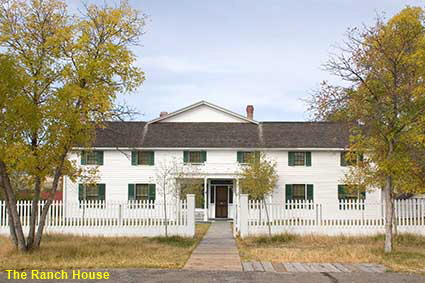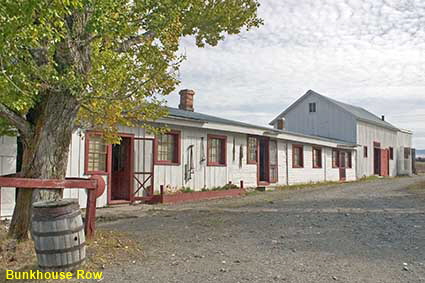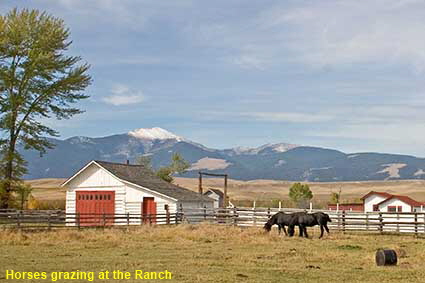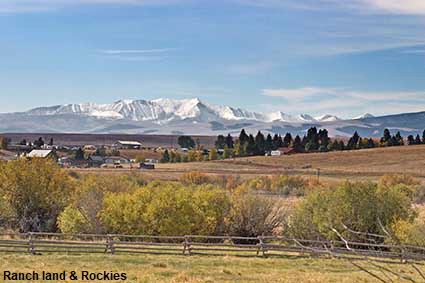Grant-Kohrs Ranch
In the mid 18th century, Montana was settlers were arriving and establishing ranches with their cattle grazing on the open range. Johnny Grant was a French-speaking Canadian who in the 1850s set up a ranch and trading post in the Deerlodge Valley of Montana. Within 10 years he had thousands of cattle and had become prosperous. In 1866 he returned to Canada after selling the ranch to German immigrant Conrad Kohrs. Kohrs enlarged the ranch and he also prospered. At its height, the ranch had around 10,000 hectares (25,000 acres) and Kohrs had ranching interests in Wyoming, Idaho, Colorado, Canada and other parts of Montana. This frontier ranch was preserved by Kohrs’ grandson and in 1972 it became a National Historic Site.
Horses grazing at the Ranch
Although much it is smaller than in Conrad Kohrs day, the National Historic Site is still an active ranch with some 650 hectares (1,600 acres) of land. There were no cattle to be seen when we visited, so we snapped the horses instead.
Bunkhouse Row
Having seen the luxurious ranch house occupied by Conrad Kohrs, the living quarters for the ranch hands (or cowboys) are distinctly down market. However the bunkhouse was a luxury for the cowboys as most of their time was spent out on the range with only a bedding roll to sleep on. The life of the cowboy was very hard and they were poorly paid. Most were very young, indeed many were of an age that would nowadays still be at school.
Ranch land & Rockies
A long focus lens picks out the snow covered Rockies that form the backdrop to the ranch. The valley itself has a relatively mild climate, enabling the National Historic Site to open year-round.
Click on Minimap to navigate
DLU061116




The Ranch House,
The front part of the Ranch House was built by Johnny Grant in 1862. The downstairs was his trading post and he and his family lived upstairs. Conrad Kohrs used it all as a house and added a large brick extension in 1890. The house was furnished in a very elegant style by Kohrs’ wife Augusta, and most of her furnishings have been preserved. The house can be viewed on guided tours.


To move forwards or backwards through the Montana trail click the arrows above, or select your next destination on the Minimap.


© Mike Elsden 1981 - 2025
The contents of this page may not be reproduced in full or in part without permission